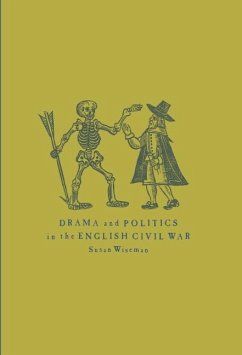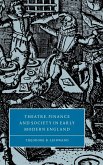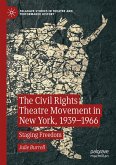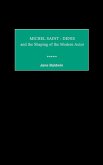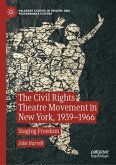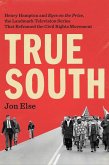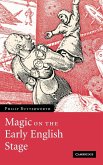In 1642 an ordinance closed the theatres of England. Critics and historians have assumed that the edict was to be firm and inviolate. Susan Wiseman challenges this assumption and argues that the period 1640 to 1660 was not a gap in the production and performance of drama nor a blank space between 'Renaissance drama' and the 'Restoration stage'. Rather, throughout the period, writers focused instead on a range of dramas with political perspectives, from republican to royalist. This group included the short pamphlet dramas of the 1640s and the texts produced by the writers of the 1650s, such as William Davenant, Margaret Cavendish and James Shirley. In analysing the diverse forms of dramatic production of the 1640s and 1650s, Wiseman reveals the political and generic diversity produced by the changes in dramatic production, and offers new insights into the theatre of the Civil War.
Table of contents:
List of illustrations; A note on texts; Acknowledgements; Preface; Introduction: how the drama disappeared; Part I. 1642-1649: Cases in Politics and Drama: 1. New news for a new world? Genre politics and the news dialogues of the 1640s; 2. 'With the agreement of the people in their hands': transformations of radical drama in the 1640s; 3. Royalist versus Republican ethics and aesthetics; Interchapter: 'The Life of Action' playing on performance in the 1640s; Part II. The 1650s: Protectorate, Politics and Performance: 4. Gender and status in dramatic discourse; Margaret Cavendish, Duchess of Newcastle; 5. Royal or reformed? the politics of court entertainment in translation and performance; 6. national identity, topic and genre in Davenant's protectorate opera; 7. Genre, politics and place: the social body in the dramatic career of John Tatham; 8. True and loyal? politics and genre in Civil War and protectorate tragicomedy; Coda; Notes; Bibliography.
In 1642 an ordinance closed the theatres of England. Historians have assumed that the edict was to be firm and inviolate. Susan Wiseman challenges this assumption and argues that the period 1640 to 1660 was not a gap in the production and performance of drama. Rather, writers focused instead on a range of dramas with political perspectives, from republican to royalist.
An analysis of the diverse focus of dramatic production in 1640s' and 1650s' England.
Table of contents:
List of illustrations; A note on texts; Acknowledgements; Preface; Introduction: how the drama disappeared; Part I. 1642-1649: Cases in Politics and Drama: 1. New news for a new world? Genre politics and the news dialogues of the 1640s; 2. 'With the agreement of the people in their hands': transformations of radical drama in the 1640s; 3. Royalist versus Republican ethics and aesthetics; Interchapter: 'The Life of Action' playing on performance in the 1640s; Part II. The 1650s: Protectorate, Politics and Performance: 4. Gender and status in dramatic discourse; Margaret Cavendish, Duchess of Newcastle; 5. Royal or reformed? the politics of court entertainment in translation and performance; 6. national identity, topic and genre in Davenant's protectorate opera; 7. Genre, politics and place: the social body in the dramatic career of John Tatham; 8. True and loyal? politics and genre in Civil War and protectorate tragicomedy; Coda; Notes; Bibliography.
In 1642 an ordinance closed the theatres of England. Historians have assumed that the edict was to be firm and inviolate. Susan Wiseman challenges this assumption and argues that the period 1640 to 1660 was not a gap in the production and performance of drama. Rather, writers focused instead on a range of dramas with political perspectives, from republican to royalist.
An analysis of the diverse focus of dramatic production in 1640s' and 1650s' England.

